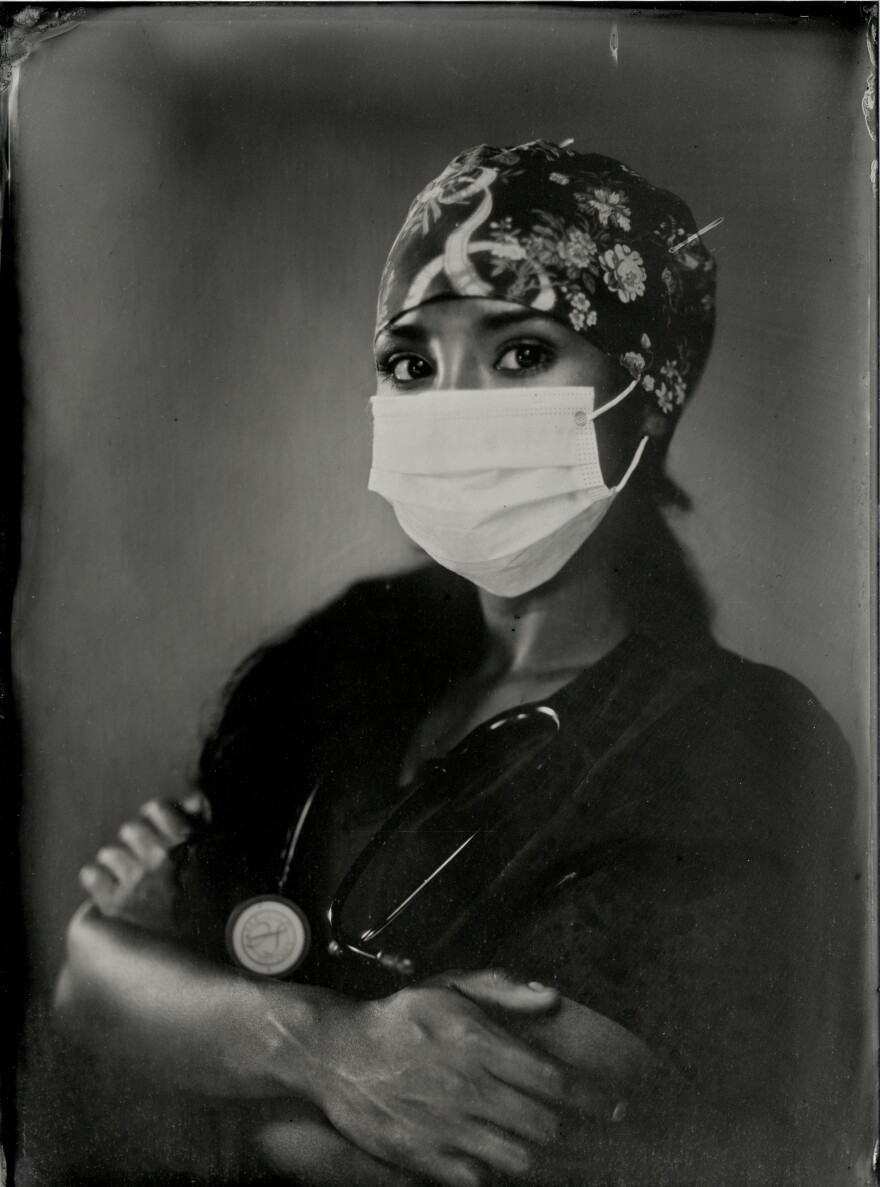The Washington Post recently ran a series of portraits of essential health care workers on the frontlines of the coronavirus pandemic. The subjects are all from northern Arizona, and they were photographed in a vintage style known as tintype, which gives them an old-timey feel. Flagstaff-based photographer Eric Retterbush is the creative force behind the powerful series, Resilience: A COVID-19 Frontlines Portrait Project. He spoke with KNAU’s Gillian Ferris about the inspiration for the series.
GF: I saw those photographs in The Washington Post, and I was awestruck. First of all, I knew some of the faces, but I was also struck by the profound depth of the eyes looking back at me. It was very mesmerizing. Can you talk a little bit about this project?
ER: Yeah, so the project actually started with my wife Alyssa. It was in late March, and she is a nurse at our local hospital here in Flagstaff. She primarily works with COVID patients and has done that since the beginning, and she was coming home with some really, really crazy stories. And me being this kind of out of work portrait photographer, I really wanted to record those. And so that’s where it started.

I brought her into the studio and we tried to kind of come up with a narrative a little bit to kind of help her process a little bit of that, that experience she was having at work. And, we were just kind of blown away immediately by those results. I threw it out on social media, and people really, really responded well to it. So, I started asking some of my friends that are also in the medical field; a paramedic, a flight nurse, and some of my closer friends, and they also had these stories that were pretty incredible. So I invited, at first, just some of my closer friends into the studio, and we got a chance to talk about those things. For me, it was a creative outlet. For them, it was a way of processing through their experience.
GF: Tell us about the tintype style of photography with which you chose to capture these…it has a really archival quality to it.
ER: Yes. It is very archival. I practice one of the earliest forms – and I will say the coolest forms of photography, as well, the wet plate collodion process is the actual process. The image that I’m getting is a silver-laden image on aluminum. That’s what we call a tintype. It dates back to the 1850’s. I also use vintage equipment as well. My camera is from the early 1920’s. And, those things combined kind of create this really, really unique image that stands out against the rest.

The tintypes are actually much longer-lasting than most modern forms of photography. They’ll last for quite possibly – if I did them right – hundreds of years. So, I think that’s something in the future…I think 2020 is going to be a very historic year. In 100 years, 200 years, 300 years, I’m hoping that these things are still around and people are going to be able to look into the eyes of folks that were in the midst of this pandemic.
GF: Eric, what did you learn from some of the people whose portraits you took?
ER: The great thing about this process is I would have people in my studio for a couple of hours and we may only get 6 or 7 tintypes made. So, it’s a very slow process and we were able to really talk things through and incorporate that immediately back into the photographs. I don’t think I came up with Resilience much later because I was just blown away by this group of people that, there’s a lot of unknowns, there’s a lot of fear – who knows what this virus is, what it does to people – and this group of people still put on their scrubs, put on their PPE, put on their uniforms and went to work and did their job. That was incredible to me. And, I just really wanted to give them the attention that they deserve for that and try my best to kind of record that through this kind of unique form of photography.



